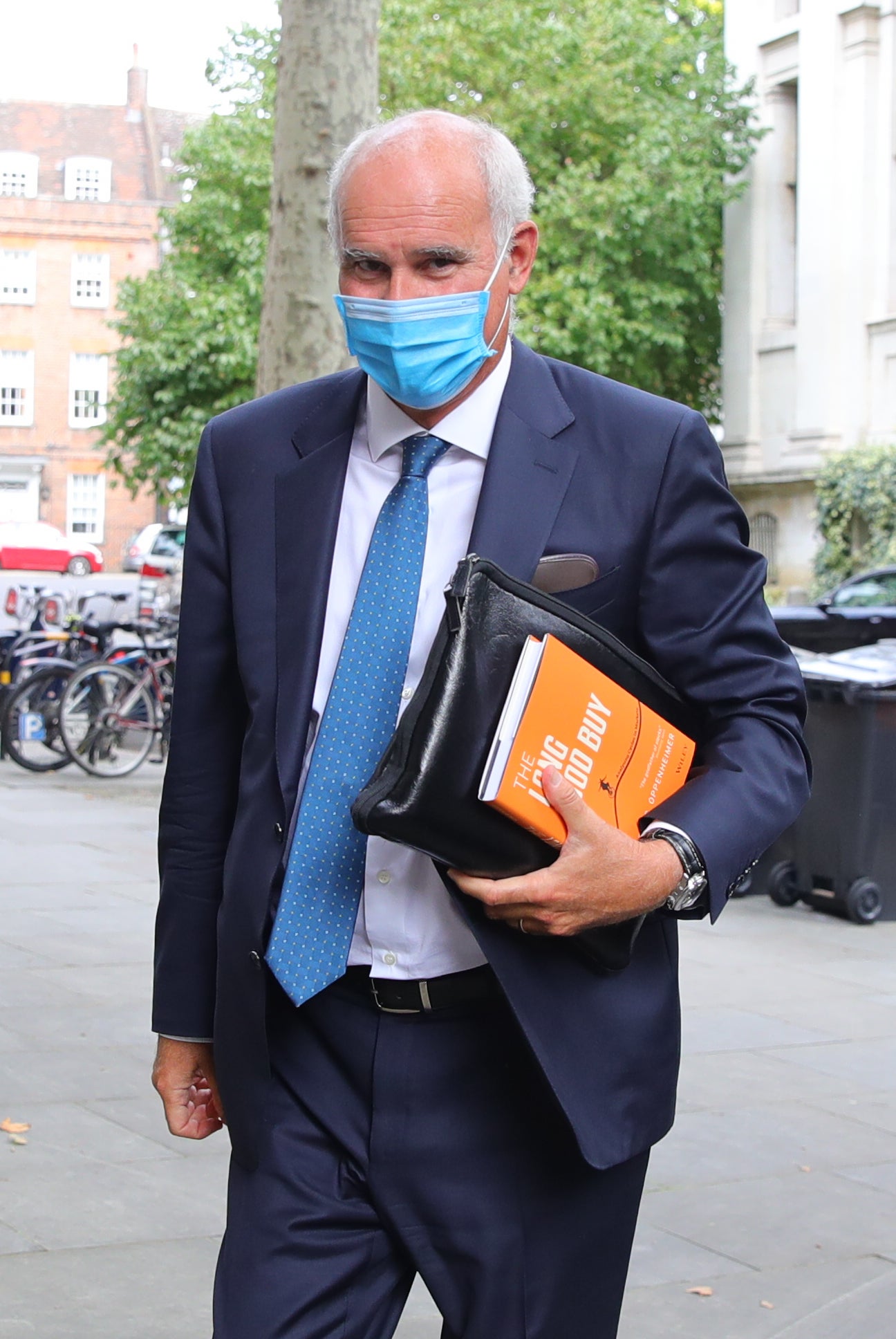EU unimpressed over Liz Truss’s post-Brexit threats on Northern Ireland
Joao Vale de Almeida, the bloc’s ambassador to the UK, said it is unhelpful to ‘keep agitating the issue’ of triggering Article 16.

Your support helps us to tell the story
From reproductive rights to climate change to Big Tech, The Independent is on the ground when the story is developing. Whether it's investigating the financials of Elon Musk's pro-Trump PAC or producing our latest documentary, 'The A Word', which shines a light on the American women fighting for reproductive rights, we know how important it is to parse out the facts from the messaging.
At such a critical moment in US history, we need reporters on the ground. Your donation allows us to keep sending journalists to speak to both sides of the story.
The Independent is trusted by Americans across the entire political spectrum. And unlike many other quality news outlets, we choose not to lock Americans out of our reporting and analysis with paywalls. We believe quality journalism should be available to everyone, paid for by those who can afford it.
Your support makes all the difference.The European Union is “not too impressed” with Foreign Secretary Liz Truss’s threat to override parts of the post-Brexit agreement on Northern Ireland if negotiations fail.
Joao Vale de Almeida, the bloc’s ambassador to the UK, said it is unhelpful to “keep agitating the issue” of triggering Article 16, ahead of discussions this week.
Ms Truss said she will suggest “constructive proposals” to her EU counterpart, Maros Sefcovic, during their first face-to-face talks, at her Chevening retreat on Thursday.
But she said she is “willing” to invoke Article 16, which would suspend parts of the treaty designed to prevent a hard border with the Republic if a deal cannot be struck.
We are eager to reconnect but we are even more eager to find compromises because we need to move on. It’s been too long
Mr Vale de Almeida told Sky News’s Trevor Phillips on Sunday: “We’ve heard this before from the Government so we’re not surprised. We are not too impressed.
“We still believe it’s not very helpful that we keep agitating the issue of Article 16. I think what we should focus on – at least that’s where we are focused on – is trying to find solutions for difficulties in the implementation of the protocol.”
He called for “new momentum” in the talks, adding: “We are eager to reconnect but we are even more eager to find compromises because we need to move on. It’s been too long.”
The Foreign Secretary was handed responsibility for the negotiations after Lord Frost resigned as Brexit minister last month.
Writing in the Sunday Telegraph, Ms Truss said it is her “absolute priority” to resolve the “unintended consequences” created by the protocol to maintain peace in Northern Ireland.
“When I see Maros Sefcovic this week for our first face-to-face talks, I’ll be putting forward our constructive proposals to resolve the situation.”
The current issues are “myriad and manifest”, she argued, citing issues such as bureaucracy on sending parcels between Northern Ireland and Britain and problems in procuring kosher food.
“I am prepared to work night and day to negotiate a solution,” Ms Truss said.
“But let me be clear: I will not sign up to anything which sees the people of Northern Ireland unable to benefit from the same decisions on taxation and spending as the rest of the UK, or which still sees goods moving within our own country being subject to checks.
“My priority is to protect peace and stability in Northern Ireland. I want a negotiated solution, but if we have to use legitimate provisions including Article 16, I am willing to do that.”
Last week, Mr Sefcovic warned that “the foundation of the entire deal” brokered between the UK and the EU will be jeopardised if Ms Truss takes the drastic step.
“This is a very distracting element in the discussions. You try to achieve something together and – bam – there’s the threat of Article 16 again,” he told German newspaper Der Spiegel.
“It touches on the fundamentals of our relationship.
“The Northern Ireland Protocol was the most complicated part of the Brexit negotiations, and it is the foundation of the entire deal. Without the protocol, the whole system will collapse. We must prevent that at any cost.”